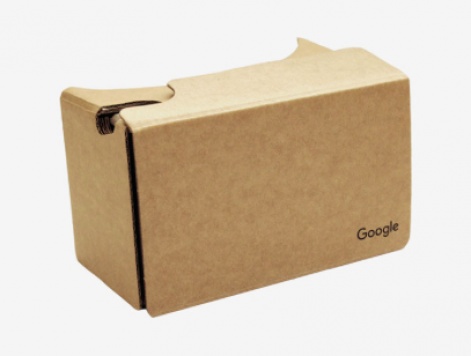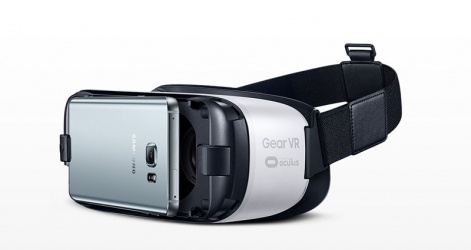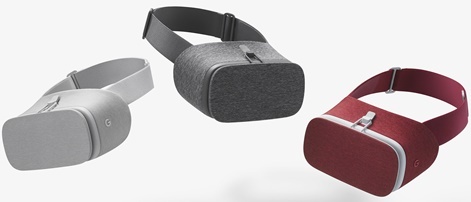We ask our industry panel - the brightest and sharpest VR professionals from around the world - one question about the VR industry, business, technology or trending stories every week.
Question: HTC has announced that it will release a mobile VR headset later this year to work with the new U Ultra phone. Should Google be concerned, given low sales of software for its recently launched Daydream View? Or has the Korean manufacturer left it too late to make up the ground on 5 million units each for the entry-level Cardboard format and Samsung’s more capable Gear VR?
A strong competitor with vast VR tech know-how is entering a Blue Ocean mobile VR market.David Gattig
David Gattig, CEO & Co-Founder at Avrlon
“HTC is a strong player in the VR scene. They gained invaluable insights from creating the HTC Vive. Thus, they enter the mobile VR market with a lot of VR knowledge and production capabilities.
“Although the TAM of mobile VR is still small at the moment, it shows great growing potential if we compare it to how the smartphone market grew from 173.5 million global shipments in 2009 to 1.4 billion in 2015.
“Google Cardboard doesn’t pose real competition. Its quality is low, it breaks easily, it’s inconvenient to use, has limited content, was mostly used as a B2B tool and has no long-term viability. It rather works as an entry port for more high-tech HMDs.
“In the end, Google should be concerned, seeing that with HTC a strong competitor with vast VR tech know-how is entering a Blue Ocean mobile VR market with plenty of market share to grab.”

Jonathan Wagstaff, Country Manager - UK & IE at CONTEXT
"One of the reasons that the Gear VR shipped so many units was that it was being offered either packaged or as an attach with new Samsung phones. As far as western markets are concerned, HTC should be looking to make a similar play for the other top smartphone vendors (Apple et al). Asian markets can be a totally different beast, so this tie-in could potentially be very successful in that region.
"Samsung have also been very shrewd with their positioning of the Gear VR within a product ecosystem; again this could work for HTC with a vendor such as Microsoft."

HTC has found a way to ride the wave of mobile VR.Stephanie Llamas
Stephanie Llamas, VP of Research and Product Strategy at SuperData Research
“HTC Vive has always been in tune with the future of the market. They quietly pulled ahead of Oculus despite all the hype around the Rift. They have been fostering an open ecosystem and pushing to forward the market at large, not just their own products. They know that their success lies not in self-promotion but in keeping ahead of what consumers will want and it's clear consumers want VR.
“HTC also manufactured the Google Pixel, the first Google Daydream View-compatible device, so they've already recognized a niche in mobile they can fulfil. Consumer adoption of VR is going to be driven by mobile, and HTC is making sure they help can both forward and participate in that growth. They've found a way to get back their relevance in mobile with the Pixel and U Ultra (the first phone which will be compatible), and .
“The introduction of a new mobile device will only increase HTC’s share of the VR market, leaving Samsung and Sony having to look for ways to innovate to stay ahead.”

HTC is late to the party, and need to offer something unique.Craig Chapple
Craig Chapple, Editor at PocketGamer.biz
“Working with Valve, HTC has proven it has the chops to make an impact in the Virtual Reality space. But it would be difficult to go premium like with Vive VR, given the difficulty companies have had shifting their low cost mobile-focused VR hardware to the mass market
“I don't think Google, or Samsung for that matter, will be too worried. Ultimately, HTC is late to the party, and will need to offer something wholly unique to get people to pick its mobile VR headset over competitors - or buy a mobile VR headset at all.”
Alexandre Tomic, Co-Founder at SlotsMillion
“Predictions put the Vive’s projected sales for 2017 at 1,340,000 devices, significantly improving on last year. As sales increase, it’s logical that consumer interest for other HTC products will rise - and in a world focused on making everything easy and accessible, phones like the U Ultra, with features like the Sense Companion, and decent quality mobile VR may be consumers’ choice over bulky high-end devices.
“Any competition from trusted manufacturers like HTC may reduce potential buyers for Google. However, Daydream’s sales are already slightly ahead of the Vive, so whether or not Google lose their edge remains to be seen.”













